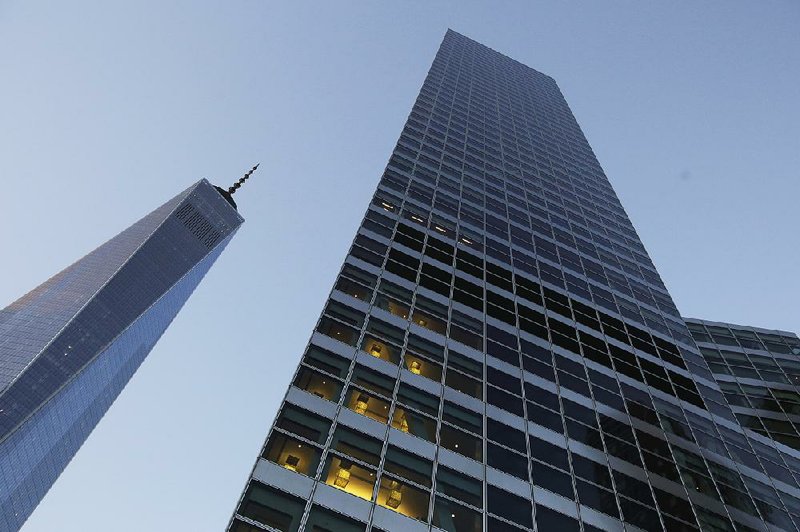Share of Goldman Sachs Group Inc., the worst performer of the 30 components of the Dow Jones industrial average this year, climbed Tuesday after blunting a plunge in first-quarter revenue by cutting costs deeper than analysts predicted and vowing to do more if needed.
The company's shares rose $3.63, or 2.3 percent, to close Tuesday at $162.65, among the biggest gains in the 30-company Dow, paring the bank's 2016 decline to about 10 percent.
"The performance was not great in the first quarter and, as a result, you saw compensation and benefits expense down 40 percent year over year," Chief Financial Officer Harvey Schwartz said during a conference call with analysts. "We are shareholders, and we are doing things that you would expect shareholders to do."
Goldman Sachs, the last of the big Wall Street banks to report earnings, joined its four biggest rivals in cutting expenses to mitigate profit and revenue declines. For Lloyd Blankfein, who's trying to ride out a bond-trading slump compounded by market swings and stiffer regulations, revenue was the lowest for a first quarter in his decade-long tenure as CEO.
Net income plunged 60 percent to $1.14 billion, or $2.68 a share, from $2.84 billion, or $5.94, a year earlier, the New York company said Tuesday in a statement. Excluding a gain from the sale of preferred stock, earnings per share were $2.32, according to data compiled by Bloomberg. The average estimate of 23 analysts surveyed by Bloomberg was $2.48. Revenue tumbled 40 percent to $6.34 billion, missing the average estimate of $6.69 billion.
Blankfein embarked on the biggest cost-cutting push in years, following his largest competitors who have turned to expenses as the only lever to pull in an environment of deteriorating revenue.
It was "a quarter to forget," Glenn Schorr, an analyst at Evercore ISI, said in a note. The firm's 6.4 percent return on equity, a gauge of profitability, was "un-Goldmanlike," Schorr said and well below investors' 11 percent "comfort zone."
The question is whether cost-cutting, either in the first quarter or over a longer time period, will be enough to satisfy investors.
Operating expenses fell 29 percent from a year earlier to $4.76 billion, compared with the $4.99 billion estimate of four analysts surveyed by Bloomberg. The firm set aside $2.66 billion for compensation and benefits, less than the $2.92 billion estimate. The compensation ratio held steady at 42 percent of revenue.
Noncompensation expenses declined 6 percent to $2.10 billion, the lowest for a three-month period in almost seven years, according to the statement.
Blankfein's cost-cutting plan, discussed by people with knowledge of the matter last week, will include dismissing more support staff; rejecting bankers' spending on airfare, hotels and entertainment unless it directly serves clients; choosing not to fill open positions; and spending less on printing pitch books or brochures.
Trading revenue dropped 37 percent to $3.44 billion. Excluding accounting adjustments, fixed-income brought in $1.7 billion and equity trading an additional $1.79 billion. Six analysts surveyed by Bloomberg called for $1.58 billion and $1.84 billion, respectively.
Revenue from investment banking declined 23 percent to $1.46 billion, beating the $1.36 billion estimate. Some senior executives were anticipating a drop of roughly 25 percent in that business, two people with knowledge of the figures said in March.
Blankfein, 61, and President Gary Cohn, 55, have defended the bank's business model, writing in their annual letter to shareholders that the firm will continue to wait out the downturn in fixed-income markets without making large-scale changes.
"It is important to remember that cycles do turn, even if the timing of such inflections may be difficult to predict," they wrote on April 8. "It certainly feels like the cycle has been prolonged, particularly as interest rates in many parts of the world remain at -- or even below -- zero, and growth and deflation concerns, among other worries, have persisted."
Business on 04/20/2016

